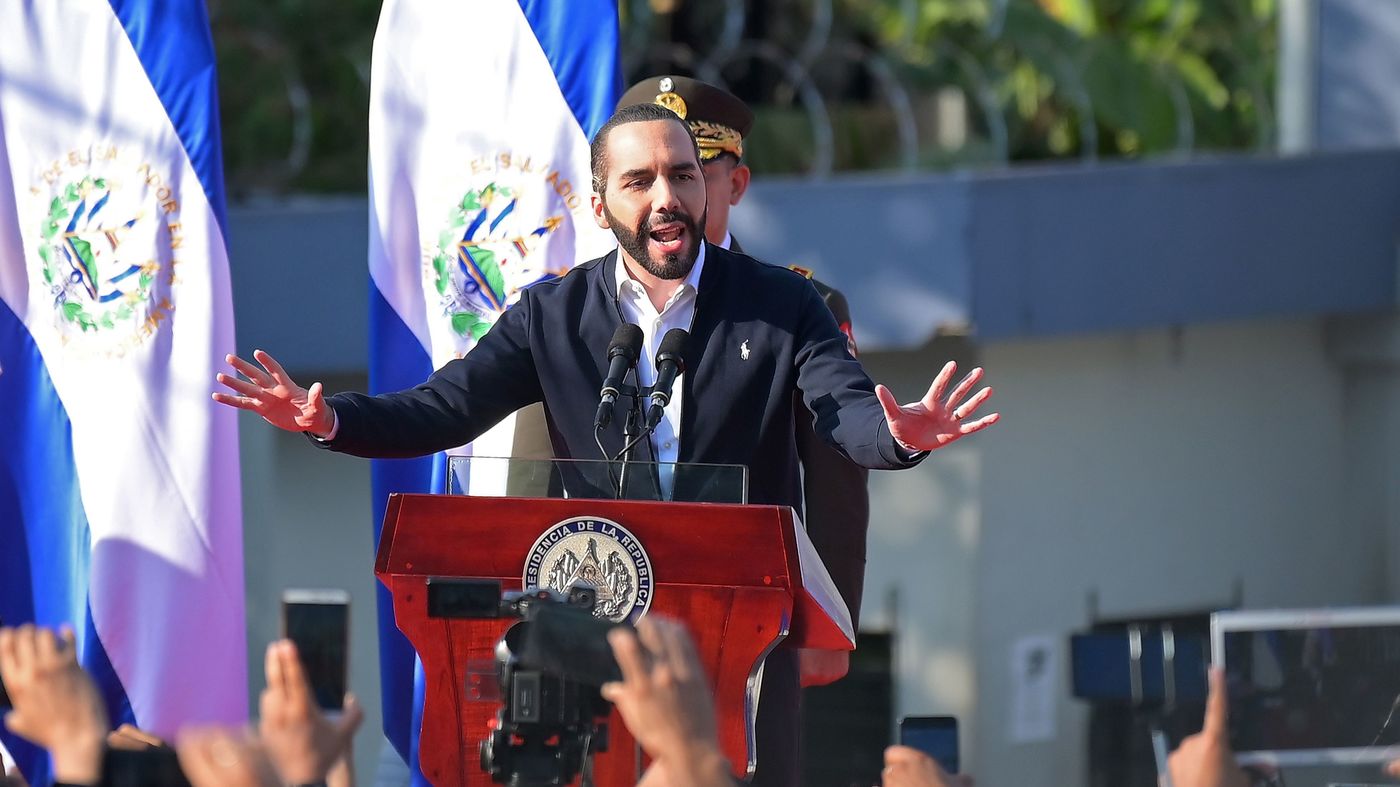In February 2019, Nayib Bukele was elected president of El Salvador in a sweeping, anti-incumbent victory. Salvadoran voters, fed up with the country’s two main political parties (the conservative ARENA and left-wing FMLN), pinned their hopes on the young, former mayor with an anti-corruption message.
Heralded by many Salvadorans as the “first post-war” president, it now seems the post-war president needs to heed lessons of the past.
Over the weekend, the popular Bukele attempted to force legislators to vote on a loan, roused his supporters with talk of insurrection, and then used the armed forces to intimidate democratically-elected lawmakers. It was a spectacle fit for the fast-paced nature of social media, Bukele’s chosen platform, but the damage to El Salvador’s democracy could be long-lasting.
What Happened in El Salvador?
Last Thursday, Bukele’s Council of Ministers ordered the Legislative Assembly to convene an “extraordinary session” on Sunday to vote on a $109 million foreign loan for military equipment and other projects to support the president’s security plan, Plan Territorial Control.
Opposition lawmakers, who have been in discussions with Bukele over the loan’s details, claimed he had no authority to call for the special session while the legislature was in session for regular business and in the absence of an actual national emergency. On Monday, the Supreme Court ruled that the Council’s order was not valid, and cautioned both Bukele and security forces not to exceed constitutional and legal jurisdiction.


When legislators refused to meet at his appointed time on Sunday and scheduled the vote for Monday instead, Bukele took to social media to urge his supporters to gather in front of the Assembly to pressure the legislators.
Before a large crowd on Sunday, the president invoked Article 87 of the Constitution, referring to the people’s right to insurrection. True to form, he stopped in the middle of the spectacle to take a selfie with the crowd. Security forces deployed throughout the capital on Sunday, a move widely regarded as a show of force to intimidate opposition lawmakers.
El Salvador’s Armed Forces
On Sunday afternoon, members of the armed forces occupied the Legislative Assembly’s Salon Azul. It was, no doubt, shocking to see the country’s armed forces occupy the legislature at the president’s behest.
Even opposition lawmakers who attended Sunday’s extraordinary session were appalled that the military was deployed within and around the legislature. It was equally disturbing that the armed forces yielded to Bukele’s request.
At a news conference, the Minister of Defense pledged his loyalty to Bukele while the armed forces and national police swore their allegiance via twitter. Notably, the Defense Ministry’s budget has increased significantly since Bukele assumed office.
With only a handful of legislators in attendance, Bukele entered the legislature and chastised the lawmakers warning that he could “press the button,” or stage a coup, if he wanted to. He then prayed for a solution to the crisis.
Exiting the Assembly to his supporters outside, he announced that God had told him to be patient. He gave lawmakers one week to vote on the loan.
Bukele’s Power Play
Whether Bukele’s power play will backfire remains to be seen. Bukele and his supporters appeared emboldened by Sunday’s show of force. A defiant Bukele turned to social media on Monday to justify his actions, which he insisted were peaceful.
Meanwhile, international actors, including the U.S. Ambassador and elected officials, were quick to condemn his actions and blamed him for escalating the situation to the point of crisis.
Over the weekend, opposition lawmakers and some in the media accused the president of an autogolpe, or self-coup, akin to Peru’s Alberto Fujimori’s dissolution of the legislature in 1992.
By Monday morning, opposition lawmakers had canceled the session in which they were to vote on the loan, refusing to yield to Bukele’s machinations. For the time being, the legislative and executive branches are at a standoff.
Dangerous Game
While the delicate situation is still evolving, one thing remains clear: Bukele is playing a dangerous game. In 1992, at the end of El Salvador’s 12-year civil war, the government and FMLN rebels pledged to resolve their conflicts through peaceful means. While certainly imperfect, that pledge has held for 28 years.
Much of that success can be attributed to placing the military under civilian control and depoliticizing its role. Involving the army and police in a dispute between civilian institutions not only violates the letter and spirit of the 1992 peace accords but attacks the very foundations of Salvadoran democracy.
And while it is certain that El Salvador’s institutions have suffered greatly under the weight of corruption over the years, there is no greater threat to the future of the country’s democratic institutions than the politicization of the military.

